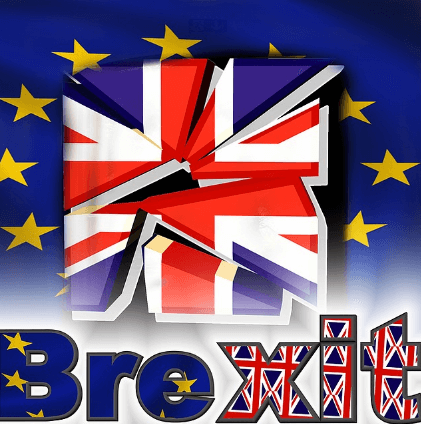 The EU was shaped and reshaped throughout its existence, with modifications, additional agreements until it became a well-oiled machine and a system that functions for everyone in the EU haven. It took some time to define all trade agreements, to establish the free zone for movement of goods, services, and persons. Now, the EU has to face something it never saw coming and something that never happened before- a country wants to leave the Union. The country is of course Great Britain, and the whole affair has been labelled as Brexit.
The EU was shaped and reshaped throughout its existence, with modifications, additional agreements until it became a well-oiled machine and a system that functions for everyone in the EU haven. It took some time to define all trade agreements, to establish the free zone for movement of goods, services, and persons. Now, the EU has to face something it never saw coming and something that never happened before- a country wants to leave the Union. The country is of course Great Britain, and the whole affair has been labelled as Brexit.
Now, the UK has to rethink its economic relations with the EU and decide how much it wants to be integrated. There are two categories that are crucial to define now, i.e. tariffs on tradable goods, and regulatory limits which will reflect on the movement of goods and services. Tariffs are more an economic question and they involve a decision between free trade zones and customs unions. It also calls for identifying the differences between intensified integration with a small fraction of countries and a more superficial integration with a bigger number of countries.
Regulatory limits will depend on political decisions which make it a more complicated issue.
Tariffs
The UK was a member of the EU customs union, where internal tariffs regulated the trades. But now, these tariffs are no longer active. The customs union facilitated internal trade within the U countries by eliminating tedious customs procedures, which did not only contribute to an easier flow, but also to cost-efficiency, were abolished and external tariffs. All non-EU members face a different customs treatment since the products entering the EU are checked form all sides.
Brexit caused the UK to redefine its tariff policy, since it has to find a way to trade with the EU as a non-member of the EU. Also, it has to find a way to define tariffs with non-EU countries since it will no longer trade under the EU umbrella.
Since still a part of the FTA (Federal Transit Administration), Britain might opt for a customs union with the EU again; this depends on what it decides to do. Such a customs union would probably work in a similar manner for Britain whereby it could trade with other EU countries just like before. On the other hand, how to define external trade tariffs? Now, it can also opt for different external trade agreements and decide on its own which one suits best the UK. There are dozens of questions to be answered and Britain is still uncertain whether to set in force WTO multilateral agreements or should it go with macro regional agreements, etc.
One thing is clear though. Tariffs should be kept to a minimum since high tariffs can infer costs on consumers, and other inefficient issues. If UK decides to form a customs union with the EU again as a non-EU member, it would still affect tariff setting with non-EU countries. Namely, Britain would have to accept not to lower its tariffs at wish when trading with external countries.
Therefore, it is speculated that a zero tariff customs union with the EU would be the most ideal for Britain, whereby it should be defined as a free trade zone or area and not strictly dictated via a customs union. This gives Britain the opportunity to foster a tariff-free trade all over the world since it could proceed with FTAs with other countries on a bilateral or multilateral basis.
Regulatory Issues
Left and right wing parties are both worried about regulatory autonomy, and regard the whole process with a significant dose of scepticism. The UK enjoyed several advantages as a part of the EU single market which is better integrated than single-country markets all over the world. UK producers had the benefit to directly trade their products to the EU without going through domestic administrative procedures, since the universal EU regulation covered for all necessary checks with no necessary involvement of national legislations.
Still, this benefit at the same time threatens regulatory autonomy. The British government felt it was left out since it could not influence its domestic regulation given that the EU legislation is always superior. The FTA policy and enforcement would give Britain greater power to control their domestic trade which could work smoothly if done right.


